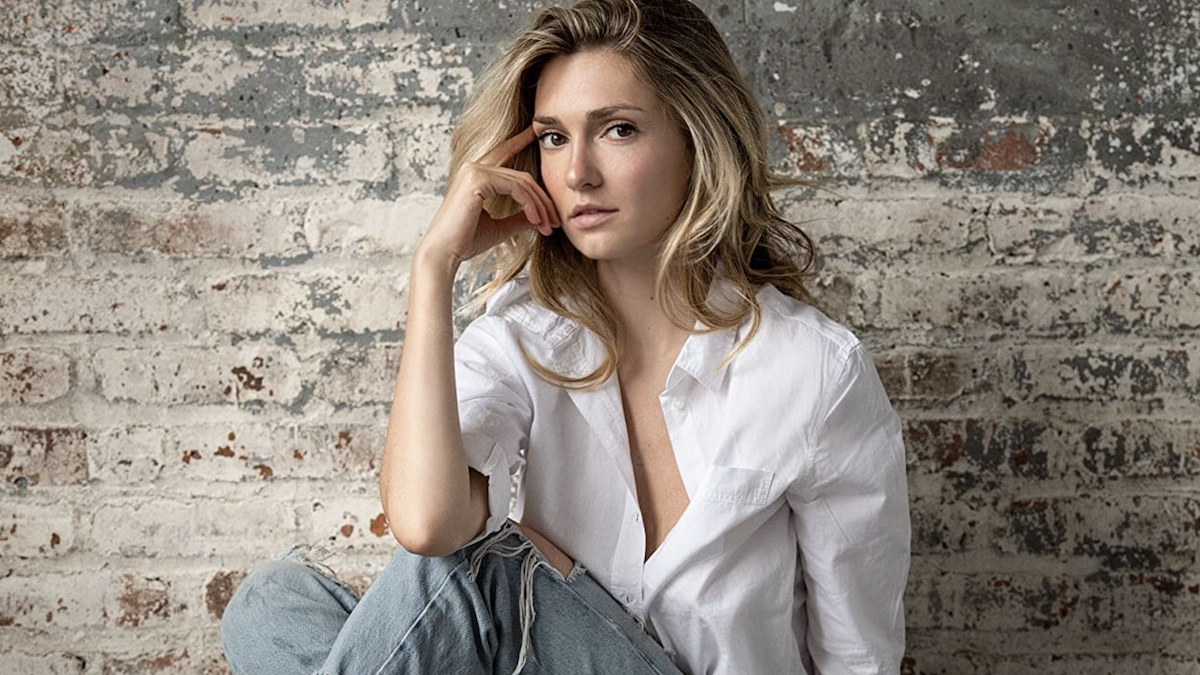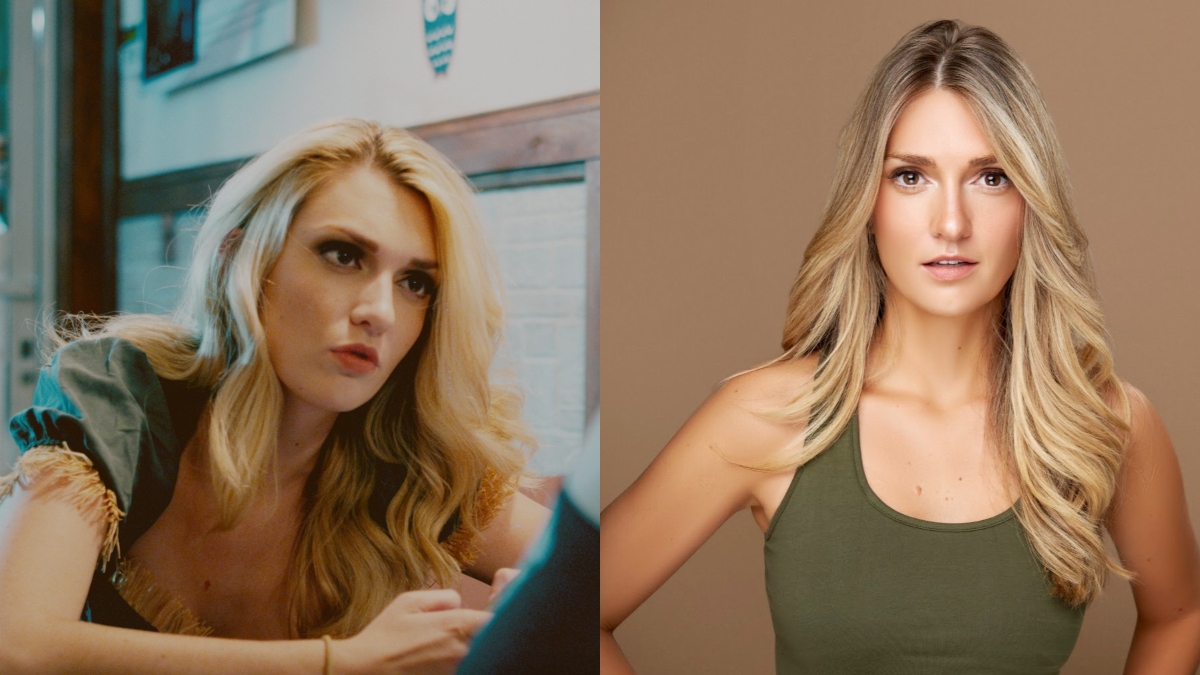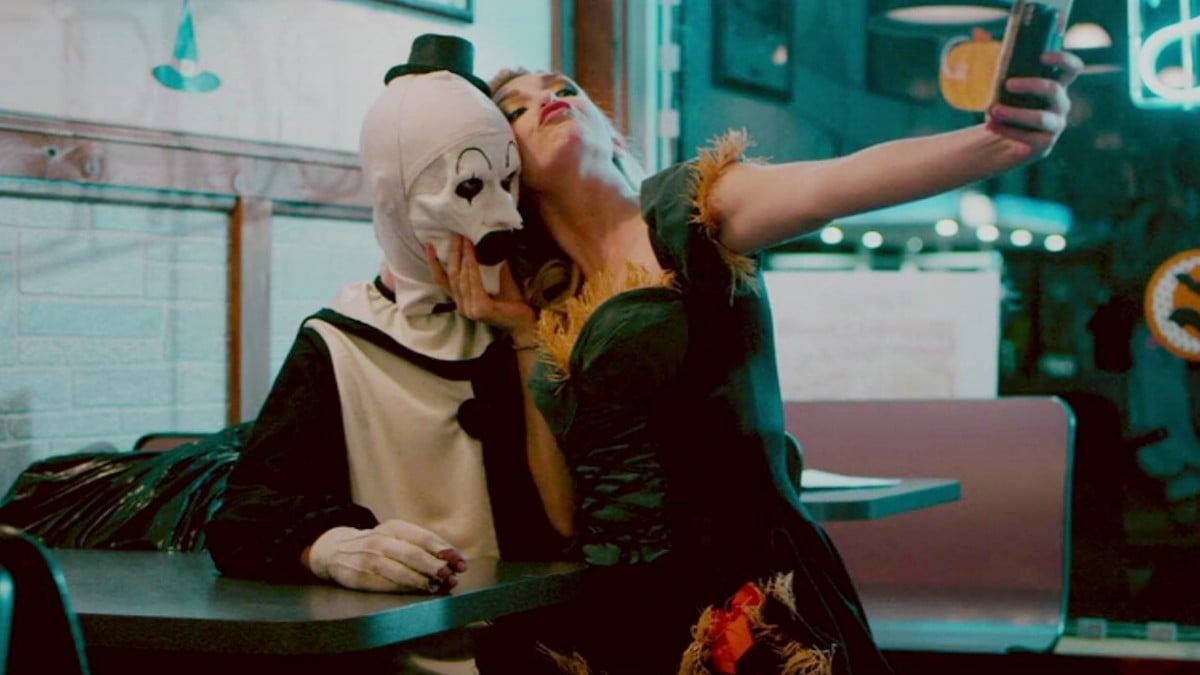The ever-popular horror genre is an immense and diverse cinematic catalog that continues to turn the wheels of change and acceptance for people of all different shapes, sizes, colors, and genders. Over the passing decades, the genre has continued to embrace the sexual power and freedom of its female protagonists, many of whom have far more opportunities now than ever before. And with breakthrough hits like Terrifier revitalizing the genre with its unique narrative and poised characters, it was only a matter of time until star Catherine Corcoran made her presence completely felt in horror.
Then again, the Philadelphia native is not one to shy away from the sheer allure of the genre, with her standout performances in the Return to Nuke ‘Em High franchise, Terrifier, and mystery-thriller Long Lost all equally serving as the foundation for her fully-anticipated extensive career. Along with performing her own stunts and priding herself on the elements of fitness and boxing, the gifted actress consistently practices a formula built on gender equality, inclusivity in cinema, and the stark importance of being an individual.
We were lucky enough to sit down and chat with Catherine recently, where she talked with us about the surreal experience of starring in Terrifier, that infamous hacksaw scene, her favorite horror movies, and her awe-inspiring message to the cinematic industry as a collective.
Note: The following interview is an abridged version of our chat with Catherine, which you can see in full in the video above.

WGTC: It’s certainly no secret that both Terrifier movies have become the center of fascination, especially within the entire horror landscape. What was it like to be involved in a project that has garnered so much attention like Terrifier?
Catherine Corcoran: Damien always says that he knew 110 percent, but I don’t think anybody else did. So I think it was a surprise to see it just take off the way that it did. Everyone always asks, “Did you always want to make a name for yourself in this genre?” And I always say that I wanted to work. I think half the battle as an actor is being employed. So when this came along, while I loved the concept, part of it was also just like, “Great, a job!” So I think seeing it really blow up in the way that it did has been really, really humbling, and I think really speaks to the power of audiences that we sometimes forget amidst awards seasons and film festivals and studio systems. It’s really easy to think that you can’t break through and really make a name for yourself and that the chips are kind of stacked against you. What this film franchise proves is the power of audiences, because if people hadn’t been so excited about the first film, that opening weekend with the second film wouldn’t have done what it did and then continued to do what it did. So I’m just really humbled that anybody cares at all and I’m so honored to be a part of something that’s so fan-driven because that’s the real reward. That it connects with a group of people. That’s why you tell stories.
WGTC: Your character in the movie, since you spoke about the saw scene, is involved in one of the most brutal scenes in modern-day horror. What was it like to participate in such a jaw-dropping scene?
Catherine: When I read the script, I had come off this run with Troma Entertainment, which Lloyd Kaufman really pushes the envelope there and takes pride in pushing the envelope, so I was used to having these conversations about what can and can’t we show, what’s gonna be powerful and what’s gonna just not work at all, and I really enjoyed that kind of work. I think it’s a little bit of a rebelliousness in me. When I was in high school, I took art classes and I used to like to work as big as possible, because they’d put me in the hallway, and I would like to incorporate really provocative imagery in my pieces because I just loved the concept of people having to walk by and deal with whatever I put up there. So I think I’ve always had this little rebellious and “damn the man” energy about me. So whenever something pushes a boundary, there’s a little devious part of me that’s like, “Okay, let’s really stir the pot here.” When I read it, I was like, “This is either gonna really land and really be amazing, or it’s gonna be absolutely god awful. There’s no middle ground here.” Damien and I talked quite a bit about why we were doing it and what we were trying to accomplish with it. And he was like, “I just wanna show something that nobody’s ever done before.” I am all in on moving things forward in that way, so that’s kinda how we did it. When we shot it that night, he said, “Are you ready to make horror movie history?” And I looked at him and was like, “You are out of your mind, it’s not gonna be a big deal.” I knew it was gonna be a lot, but I think I just thought the film itself was gonna have so much. When you’re doing stuff you don’t realize, it’s quite an honor to know that I stay with you and I hope everybody has recovered really, really well after that.
WGTC: You discussed the scene’s significance for women in a recent op-ed story for The Daily Beast, which you undoubtedly felt very strongly about. Why was it personally important for you to defend that specific scene?
Catherine: My whole career has revolved around this sexualization of myself. Not in every project that I’ve been on, but certainly within genre. I think so often we are at the whim of other people’s perception of us in this business, and it’s really nerve-racking and scary to say something and speak for yourself because you’re so nervous that you’ll alienate people or burn that bridge. I wanted to address things in a way that would not only allow myself to have a voice, but for all the other women who have gone through things like this at other points in their careers. I think it’s amazing that we can actually talk about nudity and have these things where it’s not necessarily integral to a story, but that’s new, and not new just to genre, but to all forms of cinema, if you look at the history of it. I don’t know a female actor who hasn’t gone through this early in their career, feeling like they have to perform nude. It’s a weird situation because you’re damned if you do and damned if you don’t. If you say you’re not comfortable, the consensus is that you’re not an artist. But if you do, it’s that you’re not very bright or you don’t take yourself seriously. I wanted to address the overarching themes that come into play when you’re doing this, and talk about why we as storytellers and vessels for the human condition have to show things authentically. So that’s why I wanted to talk about it, and I think there is a frustration where you watch other people speak on your behalf, so I wanted to talk about how I felt about these projects that I’ve been a part of and the things that I’ve done that I’m quite proud of and what that means for genre and for storytelling in general.
WGTC: Do you believe the article will have a positive effect on women in entertainment and do you believe it will influence your own personal projects in the future?
Catherine: I hope it has a positive effect on women in the entertainment industry. I’ve always been really inspired by Barbara Crampton and her career, and she has this article called “Don’t call me a scream queen.” What I loved about that article is that she reached out to other people who worked in the genre, and I think that’s what’s amazing about being a dynamic performer. It’s that we all have different perspectives and things that we’re comfortable with and things that we’re not. That doesn’t mean that someone is greater or less than in any way. So I hope that women read it and feel that it’s okay to speak for yourself and say how you feel about things. For me, it was really freeing to just say how I felt. So in an ideal world, that’s what it’ll do for other women. I hope it doesn’t make anyone feel less than. In terms of my own career, I don’t know. I do think sometimes that I’m nervous to lead with my knowledge of things and very often I get typecast into the young and silly girl, so sometimes I’m worried about breaking that persona. So if people read it, perhaps they’ll have a different perspective on me.
WGTC: What was your favorite part about playing Dawn?
Catherine: She is just so confident in herself in ways that I and other women struggle with. I love that she’s just comfortable in her skin, she’s strong and dynamic. What I love about Dawn is that she has this strength about her and this confidence that is just unshakable, whereas Tara is immediately skeptical and doubts herself and has to find her confidence in the film. Dawn already has it, and I love that she leads with that. And she’s ultimately punished for her audacity, confidence, and bravery as a woman. She’s punished for talking casually about interactions with men, and she’s punished for the things that biologically make her female. It’s such a powerful thing and such an extensive commentary on what it is to be a woman. I love being able to play women like that.

WGTC: What was it like working with David Howard Thornton on the movie? Did you both feel like you were about to be a part of something special?
Catherine: David is such a sweetheart, he’s really wonderful to work with. He was a theater actor and had done off-Broadway tours, so he had this physical comedy about him that obviously really lends itself to a silent character like Art. There was this safety and respect there, so I don’t think I ever felt like there was something I couldn’t do. We were constantly checking in with each other to make sure things were cool and safe, and I think that’s the biggest thing you can ask for in a scene partner. Ever since, he’s just been this fun energy to have around and we all can reconnect, so I think that’s the best part about working with someone like David.
WGTC: Are you looking forward to Terrifier 3? If so, do you think Dawn will make a special flashback appearance?
Catherine: I can confirm or deny nothing about Terrifier 3 and what Damien has planned there. I can say that I’m certainly looking forward to it. I think that all you can ask for with a director is that they try to push themselves to do better every single time, and I think he really did. He took what people were saying and criticizing about the first, and tried to improve upon that on the second with an even bigger budget. So I am excited. Any time you get to work with someone and see their career continue, you just want them to do better and better, and I’m excited to see him do that.
WGTC: Of course, Terrifier wasn’t your first taste of horror, seeing as you also made a big splash in the Return to Nuke ‘Em High franchise. What initially drew you to the horror genre?
Catherine: I always joke that work is work. I was nineteen when I booked Return to Nuke ‘Em High, and when you’re an actor, you do this trajectory where you build, and Troma was the first time somebody had offered me a starring role in a feature film. It was the first time that I really had the ability to craft a character all the way through with a team that really valued how I felt about the character and what I had to say. So when Nuke ‘Em High premiered at Cannes, after that, I started getting more involved in the community and I started getting more genre offers. And it was so cool to be able to work with people who not only knew what you had done in the past but wanted to see you succeed in the future.
WGTC: Do you consider yourself a horror fan? If so, what’s your favorite horror movie?
Catherine: I’m definitely a horror fan! I tend to lead more toward psychological thrillers than slashers. One of my favorite horror films of all time is The Lost Boys. I just love vampires. The Craft is a big one for me. I really like the Friday the 13th Franchise. More recently, I loved The Witch. I loved The Babadook a few years ago, I thought that was a great film. I have quite a few, I could go on and on.

WGTC: Did you always know that you wanted to become an actress?
Catherine: I was definitely a really precocious kid who did shows in the driveway. I started doing theater as a kid, so when they needed cute kids in productions of Annie and The Sound of Music, I was there and that’s what I did. Then I got older and I stopped being so cute and I said to my mom, “I really want to do this.” So I started taking acting classes and got my first agent that way, and started submitting and going on jobs and it went from there. Now, I’m really blessed, and not only am I a working actor, but I’ve gotten to really be trusted with the development of other aspects of projects. I’m very lucky that I get to work in the field that I dreamed that I’d be able to work in as a little girl.
WGTC: Which genre of acting would you like to pursue in the future?
Catherine: I am a huge fantasy nerd. I love Lord of the Rings, I’m such a loser. If someone was like, “Would you do the House of the Dragon spinoff?” I would be like, “Yes!” I’d love to do some more action things. I box and I’m pretty into fitness and do a lot of my own stunts, so maybe at some point, I’ll have an opportunity to work in some superhero realm. If they did another Mad Max film, that would be sick. There’s an unfulfilled urge in me. I love fantasy and period pieces, I would love to do a Shakespeare thing.
WGTC: If you could offer any advice to someone with aspirations to become an actor, whether it be in horror movies or not, what would it be?
Catherine: Trust your gut, that’s a big one. I think I wasted a lot of time early in my career second-guessing myself. And know that whoever you are, wherever you are, whatever you look like, sound like, feel like, there’s a place for you. The best advice I ever got was from one of the best people and actors I’ve ever known in my entire life. He said to me, “All you have to do to be successful in this business is keep telling stories and don’t die.” There will always be stories to tell, there will always be people who resonate with your stories. It doesn’t matter what you look like or what you sound like. All you have to do is keep telling them, and don’t die. So just keep going. It sometimes feels like you’re banging against the wall and begging for somebody to see you, and I promise you that they do and they will if it feels like they haven’t already.
On behalf of the entire staff here at WGTC, we definitely see Catherine and her devout contributions to the realm of horror, and look forward to witnessing her groundbreaking acting prowess in a variety of inclusive projects in the future.
Until then, you can stream Terrifier now on Screambox, Tubi, and Vudu.
